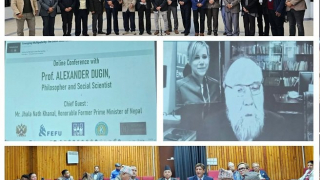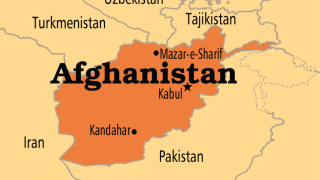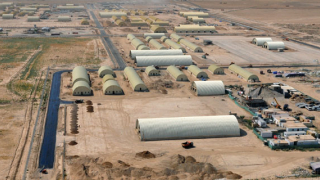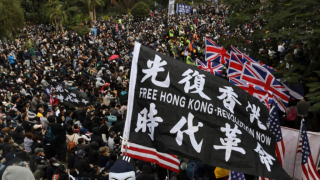Post American Afghanistan: A boon for multilateralism
The uni-polar moment
America’s hasty and chaotic withdrawal from Afghanistan has plunged the country into a humanitarian crisis. The situation is not novel. After the Soviet withdrawal from Afghanistan in the late 1980s, the US left Afghanistan in a similar conundrum. Back then, the US basked in the “uni-polar moment” and for the time being thought of itself as the sole super power. With this self-proclaimed title of the “hegemon”, the US projected its military power globally and sought to forge the political world according to its own values and ideals. The US imagined herself as the leader of the free world and would aim to intervene militarily in other states for the sake of “humanitarian cause”. The result was US military interventions in Iraq, Haiti, Rwanda, Somalia, East Timor and Yugoslavia (NATO bombing). The same notion of being the leader of the free world and American exceptionalism brought the US to Afghanistan to build a better Afghanistan specifically in America’s image through institution and nation building.
America’s unchecked and unchallenged unilateral military interventions meant minimal space for other actors. Prior to the 2021 Afghan withdrawal, American presence meant that major powers like China and Russia would have a limited role in economic and political sphere. Powered by the need to exert influence across the globe the American statecraft sought to establish military bases abroad and to “contain” other powers be them regional or continental. The so-called unipolar moment provided the US with an opportunity to exert this unilateral America led liberal agenda onto the world stage. The result was political and social unrest in Iraq, Libya and Afghanistan among others.
However, after 20 years of unilaterally deciding the fate of Afghans the American political elite decided to abandon the country. America’s decision to start withdrawal from Afghanistan was taken by President Obama and the date was set for July 2011. Since then, the Taliban -even prior to that- continued to gain more ground and influence in the country. It was clear by 2014, that US withdrawal from Afghanistan would mean the recrudescence of Taliban on the national political stage.
Transition to multilateralism
America’s need for a swift way out prompted Pakistan to play its role and try to somehow manage the coming crisis. A resurging Taliban, growing domestic and economic pressures forced US to hasten the withdrawal even if it meant chaos in the region. However, Pakistan led the way in facilitating the dialogue between the US and the Taliban to reach a consensus on withdrawal. Pakistan wished to have a controlled and well-coordinated withdrawal that does not result in uncertainty and a result to warlordism. The US’s singular aim throughout the dialogues with the Taliban was to not allow terrorist organizations to establish bases in Afghanistan and engage in international terrorism. Sensing this shift the Kingdom of Saudi Arabia, Russia, Iran and China also established their channels of communication with the Taliban. The realization of Taliban coming back to power was felt by regional states more than the American backed Ghani regime or American political elites themselves. Whom continued to have a misplaced belief in fighting will of the Afghan National Army.
Russia and China have significant economic and security related concerns vis-a-vis Afghanistan. The most pressing concern after American presence in Afghanistan for these states was to hinder spillover effect of violence that might erupt as Taliban would take over. The close proximity geographically and ethnically of the Central Asian Republics with Afghanistan can result in violence across borders. Both China and Russia have engaged with the Taliban to convey their concerns over the years. However, security concerns persist to this very day. Sensing that the situation might spiral out of control with ISIS fighters’ presence, Russia has sent military equipment to Tajikistan.
Both China and Russia continue to actively engage the Taliban leadership on way forward and urge the Taliban for an inclusive government that represents all segments of Afghan society. The Taliban’s need for legitimacy and international recognition would also force them to engage and to an extent act of suggestions by global powers.
Pakistan’s security concerns are also of a similar nature – spilling over of violence. Pakistan has hosted 4 million Afghan refugees since decades. Pakistan enjoys a significant trade surplus with Afghanistan. Pakistan played its role in facilitating the US-Taliban talks and released on US’s behest Mullah Abdul Ghani Baradar who is now being rumored to lead the government in Afghanistan. Pakistan has faced its own challenges of terrorism emanating from Pak-Afghan border region. Pakistan also played a significant role in airlifting American and other nationals from Kabul Airport. Currently Pakistan is leading the efforts in bringing together international community to work collectively for Afghanistan’s future.
The West continues to berate and blame the Taliban regime, President Ghani’s fleeing and even each other. The US has also frozen Afghanistan’s foreign reserves around 9 billion USD. As the American led global order recedes and disengages so do the international financial institutions that spawned it. The World Bank and International Monetary Fund have also halted aid that was going to Afghanistan. The US Secretary of State, Anthony Blinken has stated that any engagement with the Taliban would be based on their actions. America’s unilateral use of force across the globe under the guise of “war on terror” and global influence are on the wane. The shambolic withdrawal from Afghanistan has also raised concerns in other western allies like Taiwan, Japan and South Korea that rely significantly on American security. Such commitments would compel the US to remain relevant and maintain a high degree of influence in the region. The US has called back troops, but will continue to use coercive diplomacy tactics to try and squeeze the Taliban regime. But such a move would have disastrous effects on the Afghan population and the fledgling economy would utterly collapse. This is where the opportunity presents itself.
The need of multilateralism in Afghanistan
There is a full-fledged humanitarian crisis in Afghanistan. As the West continues to shy from sharing the burden on Afghan refugees and America being in full retreat, the global order would require significant sharing of burden created by America’s gross miscalculations. There is a mismatch of expectations among the western alliance on how to engage Taliban if at all. That hesitancy is resulting in a lack of coordinated response.
Cognizant of the need to manage the crisis, China will be providing a much needed 31 million USD worth of food and 3 million COVID-19 vaccines. Pakistan also hosts regular meetings with regional political leaders and military commanders on the Afghan situation. Pakistan has also sent aid in the form of cooking oil and medicine. Pakistan has also called for un-freezing Afghanistan’s assets. It is noteworthy, that Qatar’s role in evacuation and airport management in Kabul has allowed thousands of evacuations. Qatar is also trying to help bridge the gap between Taliban and the international community to help Afghans in this crisis.
The United Nations has warned that around 97% of Afghan population could end up in abject poverty by next year. The food shortage, COVID, Taliban takeover and collapsing economy would not only hurt the Afghans. The region would also feel the repercussions. With the exit of West and lack of consensus among the alliance, other regional players and powers must come to the rescue and play their part. As it stands the “uni-polar moment” has passed. Regional players must take up the responsibility to collectively share burden of the Afghan situation and not wait for the West to act who seems hesitant to engage Taliban.
As America recedes from the global stage there will be a power vacuum that can spell havoc. Regional players must engage among themselves to leverage influence and investment for the betterment of the Afghan people.*
__
*Views and opinions expressed are of the author and do not present those of SDPI.













